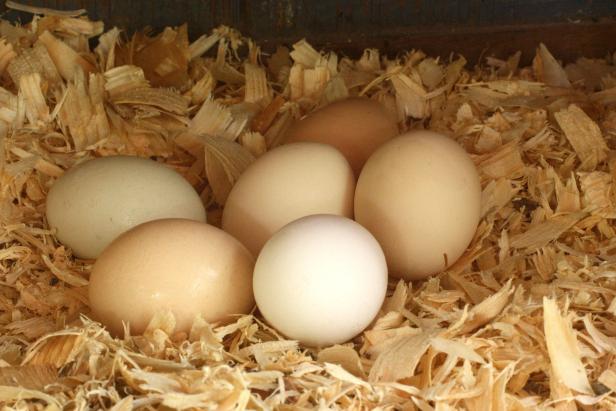Do Eggs Need to Be Refrigerated?


A friend started her first backyard flock this summer. After patiently waiting for the arrival of her first eggs, she was finally rewarded with a clutch of half a dozen or so waiting for her in one of the nesting boxes, but was concerned by how long it had been since she last checked the box. The eggs may have been sitting there several days before she discovered them. Were they still edible?
There is a simple test for determining whether an egg is still fresh enough to eat. Drop an egg in a bowl of cold water. Fresh eggs will sink, “bad” eggs will float. If she was concerned, she could perform the test, but I assured her they were fine and she could go ahead with breakfast. Her question was one I’ve heard many times.
Do eggs need to be refrigerated?
Here in the United States and Canada eggs are refrigerated, but travel the world and you are more likely to find eggs stacked on a shelf in the bread aisle than next to the milk. The rules the USDA lay out here are pretty clear. For freshness and safety, commercially sold eggs must remain refrigerated from farm to table. Salmonella, the primary concern for egg consumers, is less likely to develop under refrigerated conditions. Does that mean those Europeans are living dangerously? Not necessarily. It all comes down to bloom.
Bloom is a natural protective layer that coats eggs. It seals the pores to reduce moisture loss and prevents the development of bacteria. This keeps eggs laid by healthy chickens fairly safe from disease and remains intact until the egg is washed. For backyard chicken owners and small farms here in the U.S., the bloom allows eggs to spend some time unrefrigerated without significant risk. Because large scale egg producers cannot effectively monitor the health of individual chickens, the USDA has established stringent rules that require eggs be thoroughly washed before distribution. Potential bacteria is removed, but also that protective layer, making refrigeration important, if not essential.
For those raising backyard chickens, the question of refrigeration is common. Assuming chickens are healthy and the coop is sanitary, leaving eggs out for a while isn’t a problem. In fact, many who raise chickens often leave them out until ready to use. As soon as eggs have been washed though, it is important they are refrigerated for safety reasons.
Washed or not, eggs will stay fresh longer when kept cold. It is believed that one day unrefrigerated equals a week in the fridge, in terms of freshness. Because many commercially sold eggs take weeks to reach the grocery store, the need for refrigeration becomes even more apparent.
If you decide to keep those beautiful home grown eggs on display, safety and freshness should always be kept in mind. I love the egg skelter, a sloped rack for storing eggs on the counter. Loading racks from the top will ensure that the oldest egg is up front and taken first. Eggs stored unrefrigerated should not be washed until they are used. Because the origins of purchased eggs cannot be certain (even when organic or farm fresh), they should always be refrigerated.
If you choose to refrigerate, those eggs are committed. Once chilled, an egg returned to room temperature may sweat, opening pores and exposing the egg to potential bacteria.
As for me, I label egg cartons with the date the eggs were collected and keep them in the fridge. Old habits die hard.













































